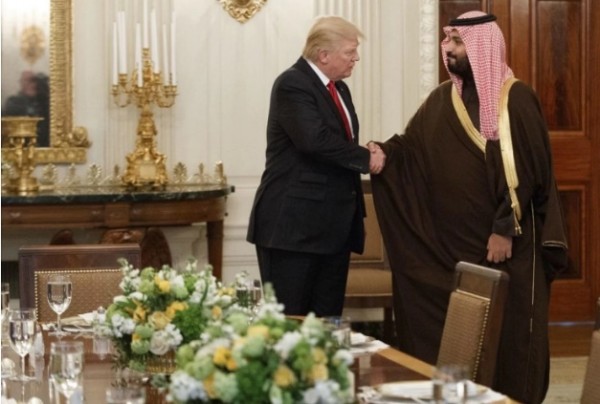The Washington Post: Saudi Arabia wasn’t Always this Repressive. Now It’s Unbearable

2017-10-18 - 6:23 p
Bahrain Mirror: Jamal Khashoggi, Saudi journalist and author, wrote an article in "The Washington Post" newspaper entitled "Saudi Arabia wasn't always this Repressive. Now It's Unbearable" in which he spoke about measures taken in Saudi Arabia against those who express their opinions as well as the wave of arrests that took place after Mohammed bin Salman rose to power.
Khashoggi said that "With young Crown Prince Mohammed bin Salman's rise to power, he promised an embrace of social and economic reform. He spoke of making our country more open and tolerant and promised that he would address the things that hold back our progress, such as the ban on women driving."
However, Khashoggi noted the recent wave of arrests, indicating that "Last week, about 30 people were reportedly rounded up by authorities, ahead of the crown prince's ascension to the throne. Some of the arrested are good friends of mine, and the effort represents the public shaming of intellectuals and religious leaders who dare to express opinions contrary to those of my country's leadership."
He went on to say "In 2003 and again in 2010, I was fired from my job as editor in chief of a "progressive" paper, Al-Watan. During the years in between, I served as media adviser to Prince Turki al-Faisal, the Saudi ambassador to Britain and then the United States. Perhaps it seems odd to be fired by the government and then serve it abroad. Yet that is truly the Saudi paradox. In the starkest terms, Saudi Arabia is trying to moderate the extreme viewpoints of both liberal reformers and conservative clerics. And the arrests span that spectrum."
In recent months, Saudi Arabia has instituted several new and extreme policies, from full-throated opposition of Islamists to encouraging citizens to name others to a government blacklist. Those arrested were on that list. Columnists close to the Saudi leadership repeatedly demanded that Islamists be "eradicated." It's no secret that the crown prince despises the Muslim Brotherhood, yet it is actually a strange contradiction to identify a person as a Muslim Brotherhood activist.
"Regardless of who is being targeted, this is not what Saudi Arabia needs right now. We are going through a major economic transformation that is supported by the people, a transformation that will free us from total dependence on oil and restore a culture of work and production," the writer added.
He further stated that this is a very painful process. Mohammed bin Salman is best served by encouraging constructive, diverse opinions from public figures such economists, clerics, intellectuals and business people who have instead been swept up in these arrests.
"My friends and I living abroad feel helpless. We want our country to thrive and to see the 2030 vision realized. We are not opposed to our government and care deeply about Saudi Arabia. It is the only home we know or want. Yet we are the enemy. Under pressure from my government, the publisher of one of the most widely read Arabic dailies, Al-Hayat, canceled my column. The government banned me from Twitter when I cautioned against an overly enthusiastic embrace of then-President-elect Donald Trump. So I spent six months silent, reflecting on the state of my country and the stark choices before me," Khashoggi expressed.
He said "It was painful for me several years ago when several friends were arrested. I said nothing. I didn't want to lose my job or my freedom. I worried about my family," however "I have made a different choice now. I have left my home, my family and my job, and I am raising my voice. To do otherwise would betray those who languish in prison. I can speak when so many cannot. I want you to know that Saudi Arabia has not always been as it is now. We Saudis deserve better," he continued.
- 2022-07-07Israel Reaches Record Trade Increase With Arab States Under Abraham Accords
- 2022-06-10Israeli PM Bennett Visits Abu Dhabi, Meets with UAE President
- 2022-06-10Israelis to be Allowed into Qatar for World Cup, Officials Say
- 2022-06-06Biden should not Visit Saudi, Meet Crown Prince: US Lawmaker Adam Schiff
- 2022-06-01Israel Signs UAE Free Trade Deal, Its First in Arab World